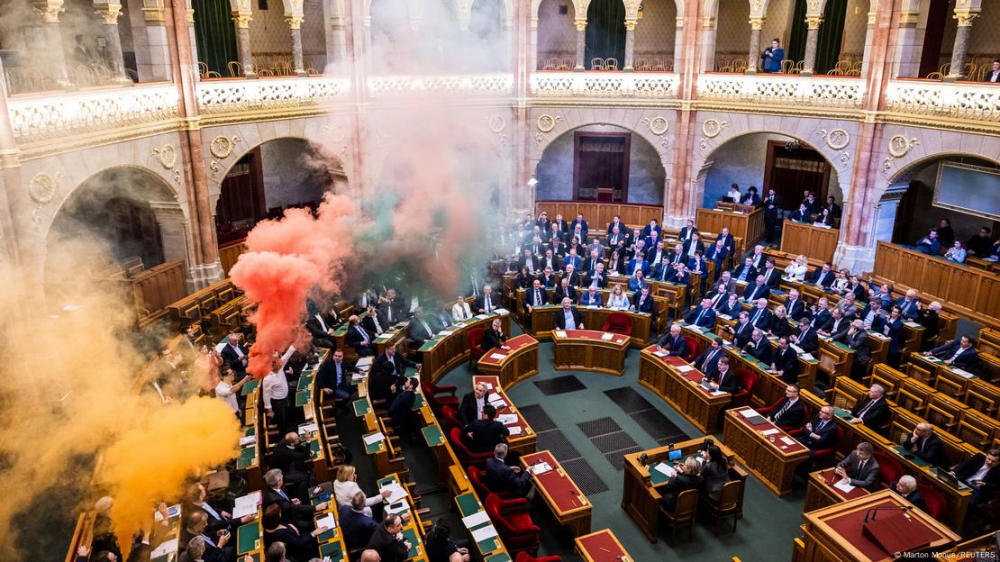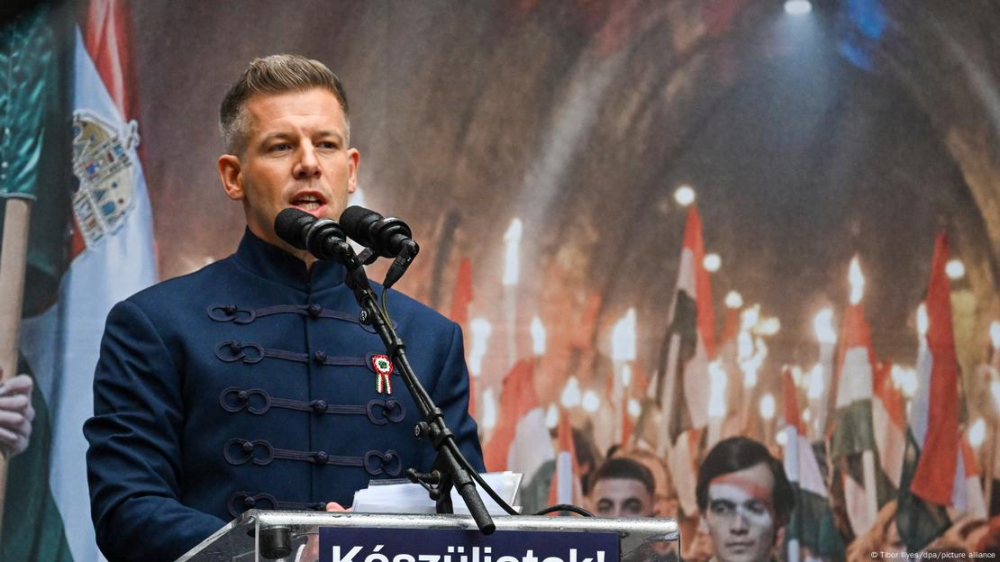
Orban’s government has canceled Gay Pride parades, calling them a “threat to the nation’s youth.“
Budapest — The Hungarian government, under Prime Minister Viktor Orbán, has introduced a ban on Pride parades, citing the protection of children as its primary justification.
On March 18, new legislation was passed prohibiting public events that display queer symbols, such as rainbows, portray sexuality “as an end in itself,” or involve participants dressing in ways that differ from their gender assigned at birth. Violations of this law carry fines of up to €550 ($595).

Critics contend that this ban serves as a distraction from corruption allegations and Orban’s waning public support.
They highlight the government’s contrasting stance toward Neo-Nazi marches, such as the annual event at Buda Castle in February, where participants donned uniforms and displayed totalitarian symbols, including swastikas and Russian flags, despite existing laws prohibiting such public displays.
Nazi uniforms and black fighting gear bearing Russian flags, the letter Z, SS symbols and swastikas — the dress code for hundreds of neo-Nazis marching at the Buda Castle in the heart of Budapest this February was militant. The castle, the site of annual Neo-Nazi commemorations, is not far from the office of Prime Minister Viktor Orban.
It’s illegal to demonstrate or protest in uniform in Hungary, as well as to wear such totalitarian symbols in public. But Orban’s government allows Neo-Nazis and devotees of Russian President Vladimir Putin to march with impunity every year.
By contrast, the government’s approach to dealing with what it calls “LGBTQ propaganda” is drastically different. In June 2023, a Budapest bookstore was fined €32,000 ($35,000) for displaying a comic about two gay boys on a shelf where minors could see it. Such displays of “LGBTQ propaganda” are forbidden in public.
Orban has escalated his rhetoric against political opponents, notably in a March 15th speech commemorating Hungary’s 1848 revolution.
He referred to critics as “bugs” and pledged an “Easter cleaning” to dismantle what he called a “financial machine” funded by “corrupt dollars” to influence Hungarian politics. Opposition figures and journalists have criticized this language as dehumanizing and evocative of authoritarian regimes.
Hungary is grappling with significant economic and social challenges, including high inflation and strained education and healthcare systems. Investigative reports have also uncovered alleged corruption within Orban’s inner circle, detailing the wealth accumulated by his family and claims of financial misconduct at the Hungarian National Bank.

In this context, Peter Magyar, a former member of Orban’s Fidesz party, has emerged as a prominent opposition figure. After founding the Tisza (Respect & Freedom) party in early 2024, Magyar has surged in popularity, with polls showing Tisza outperforming Fidesz and Magyar ranking as Hungary’s most popular politician.
The government has proposed a constitutional amendment to revoke Hungarian citizenship from dual nationals deemed security risks, a measure critics view as an effort to suppress dissent and deepen societal divisions ahead of the 2026 parliamentary election.
While Orban’s opponents have not faced physical violence, they report heightened surveillance and propaganda campaigns. Magyar, for instance, has shared evidence on social media suggesting he is under constant monitoring.
Despite the ban, Budapest’s liberal mayor, Gergely Karacsony, has denounced the legislation and expressed hope that this year’s Pride parade, scheduled for June 28, will proceed and draw larger crowds than ever. Organizers remain determined to hold the event, setting the stage for potential confrontation with the new law.
Hungary Bans Pride Events Amid Political Tensions, Mirroring Russia (March 22, 2025)